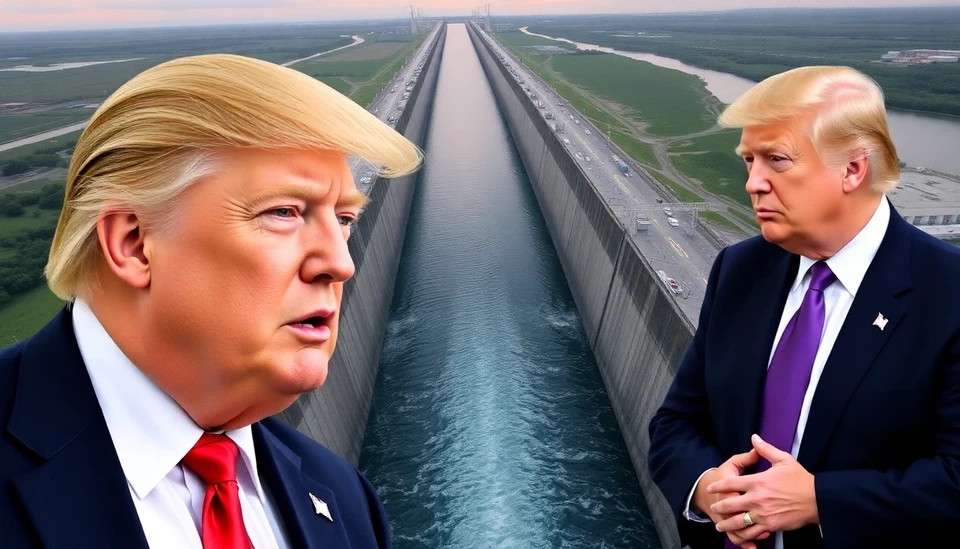
In a bold declaration that echoes through the halls of international diplomacy, former President Donald Trump has reiterated his stance on the Panama Canal, asserting that the U.S. will demand its return if Panama does not lower transit fees charged to American ships. This statement not only reignites a long-standing debate over the management of the canal but also raises significant questions about U.S.-Panama relations and international maritime trade.
Trump's remarks come as tensions around global shipping routes rise, with the Panama Canal serving as a crucial artery for maritime commerce. His assertion points to a broader theme of prioritizing American interests in international agreements, a hallmark of his administration's foreign policy. According to Trump, the increased fees enacted by Panama for the use of the canal have put a fiscal strain on American shipping companies and, by extension, the U.S. economy.
During a recent rally, Trump emphasized, “If they don’t lower their fees, we’ll take a very serious look at whether we should have control of the canal again.” This assertion harkens back to the late 20th century, when the U.S. relinquished control of the canal to Panama in 1999 under the Torrijos-Carter Treaties. The transfer was initially seen as a significant moment of Panamanian sovereignty but has since been subject to scrutiny and debate.
The Panama Canal, which facilitates a shortcut for ships traveling between the Atlantic and Pacific Oceans, is vital for global trade. A substantial portion of U.S. imports passes through this transit route. Trump’s comments have reignited discussions around American dependency on this significant infrastructure and the fairness of current toll structures that impact trade dynamics.
Experts in international relations and trade have weighed in on Trump's proclamation. Many have pointed out that while the sentiment resonates with nationalistic economic principles, the practicality of reclaiming control over the Panama Canal poses considerable challenges. Legal ramifications and historical agreements may complicate any move toward reclaiming control, and such actions could incite diplomatic tensions not only with Panama but also with other nations that depend on the canal for trade.
Moreover, reactions from Panamanian officials have been swift, with many signaling that the canal's operational fees are based on international standards and need for maintenance. Panama’s administration has underscored the importance of the canal as a shared global asset, depicting the infrastructure as a key to both their national economy and the global trade network.
As the debate unfolds, it is clear that Trump’s comments are poised to reignite discussions in both political and economic spheres, urging stakeholders to evaluate the future of U.S.-Panama relations and the implications for maritime trade. The implications of Trump’s statements could lead to a deeper reevaluation of naval and shipping policies, especially as the U.S. prepares for a changing geopolitical landscape.
In summary, Trump's renewed rhetoric about the Panama Canal raises complex issues surrounding control, economic interests, and international diplomacy, compelling both nations to rethink their stances in this evolving scenario.
#Trump #PanamaCanal #InternationalRelations #Shipping #MaritimeTrade #USPanamaRelations
Author: Daniel Foster




